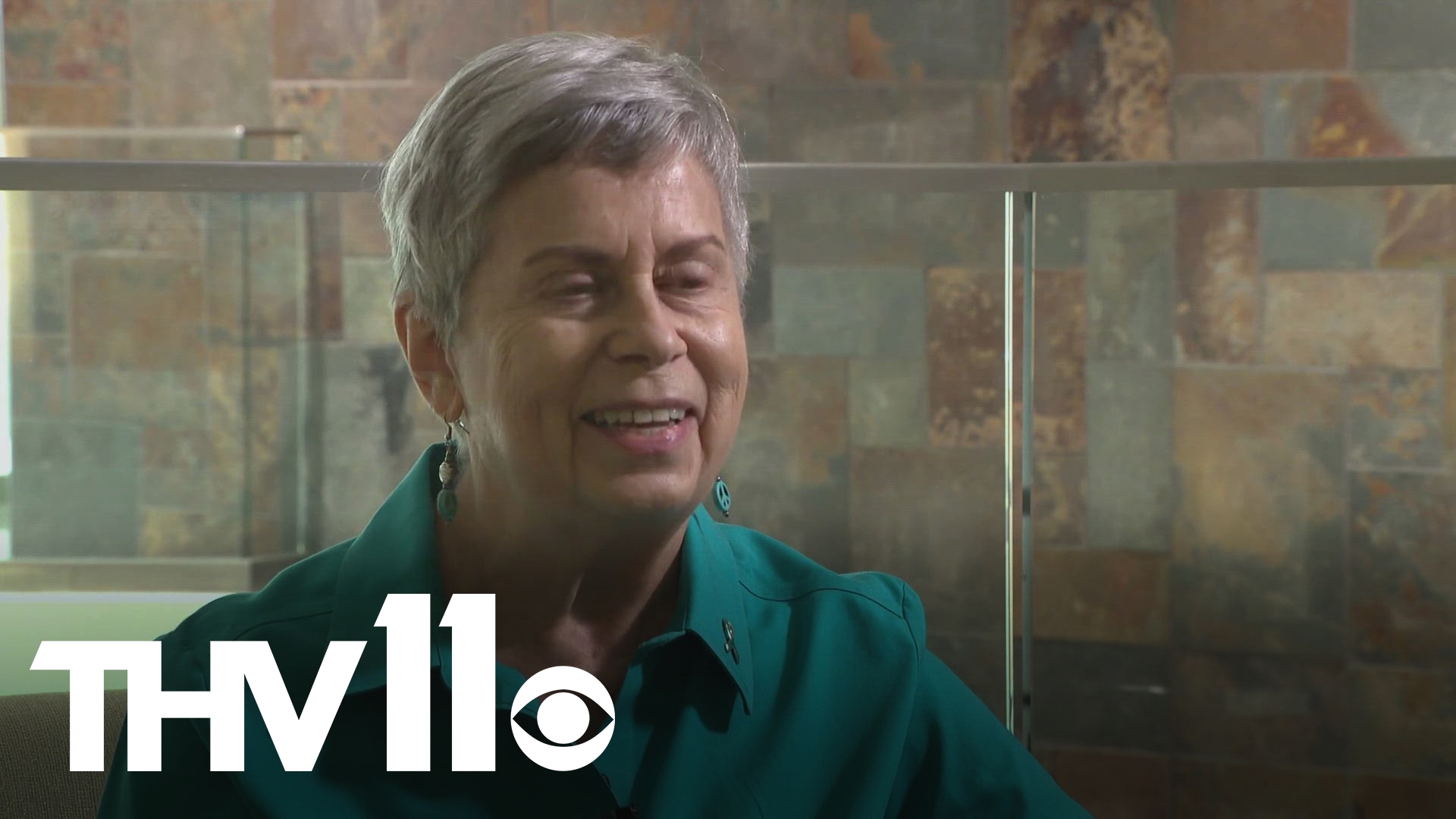LITTLE ROCK, Ark. — Many women are aware of breast cancer and the color pink associated with it— but today, the color teal is being worn to bring much-needed attention to ovarian cancer.
Retired professional photographer DeAnn Shields-Marley is a survivor of ovarian cancer and is now 16 years out from her battle with this rarer form of female cancer.
She received successful treatment from the University of Arkansas for Medical Science's Winthrop P. Rockefeller Cancer Institute, where she only needs annual check-ups now.
At that time, a survival rate like hers was considered nearly impossible.
“I figured it was a death sentence," she described. "Maybe at the most, two years. So, I had a will drawn up and all of those things."
According to Dr. Monique Spellman, there is still no screening test available for ovarian cancer, and that's what makes early detection so challenging.
"We teach our students to listen to our patients and to screen for these types of symptoms, and to think of 'ovarian cancer' early, rather than just saying it's a urinary tract infection," said Dr. Spellman, a professor and Director of the Gynecologic Oncology Division at the UAMS Winthrop P. Rockefeller Cancer Institute.
Ovarian cancer begins when abnormal cells in a woman's ovaries or fallopian tubes grow and multiply out of control.
According to the American Cancer Society, in 2024, nearly 20,000 women will be diagnosed with ovarian cancer and just under 13,000 will die from it.
Dr. Spellman explained that because the symptoms are so vague, it’s typically a later-stage cancer by the time a patient receives a diagnosis.
“The most common stage of ovarian cancer is a stage three or four when it presents, and it's because it presents with the symptoms of bloating and trouble eating, when you already have fluid inside the belly, or when you already have a disease that's outside the ovary," she explained.
DeAnn said the first symptom she noticed was her weight fluctuating and thought a diet might help her slim down.
“I had been gaining belly fat. Nowhere else did I gain weight," she described. "So, I took this over-the-counter thing that's supposed to make you get rid of belly fat. I took a month of it, and nothing was happening."
DeAnn eventually saw a gastroenterologist who sent her to receive a scan. From there, she began a whirlwind of surgery at UAMS. It was in the recovery room after surgery that she learned exactly what she was up against.
“The doctor came out while I was in recovery and he said, ‘We kept you open as long as we could, five or six hours, but you're still completely covered’ from under my breast all the way down with rice-sized cancer cells," she recalled.
DeAnn began chemotherapy to try and rid her body of those cancer cells, all while at the height of success as a professional photographer, specializing in architecture.
Feeling sick from the treatments, DeAnn drove to a photo shoot in Fayetteville, where she would capture a picture that earned her an award. Her shot of the Bentonville Fire Department was shown on the cover of the “National Fire” magazine.
She knows now that she's among the lucky women whose disease did not come back, as it so often does with ovarian cancer.
To newly diagnosed women, she offers this advice: "Hang in there! Don't give up. You can give up easily. Just don't give up. I mean, it's getting better all the time."
Because it is less common, ovarian cancer research receives less government funding. One source of money is a long-standing Department of Defense add-on bill, but overall funding for this cancer is around 1/10th of what other cancers receive.
Dr. Spellman said the United States also needs more gynecologic oncologists. She added that advances in treatment protocols, including pharmaceuticals, are being made, and that any woman in Arkansas is welcome to come for treatment at UAMS.
Dr. Spellman said there is an acronym to help women identify the symptoms of ovarian cancer. It’s the word “beat”, as in “beat cancer”. The B represents bloating, the E stands for eating but feeling full too soon, the A references abdominal pain or discomfort, and the T stands for trouble urinating or having the sensation of needing to use the restroom.
She advises all women who have their ovaries to stay on top of symptoms like these and listen to their bodies if something feels wrong.
While there is no diagnostic test, finding any cancer early, especially one with a high mortality rate, is an advantage.

